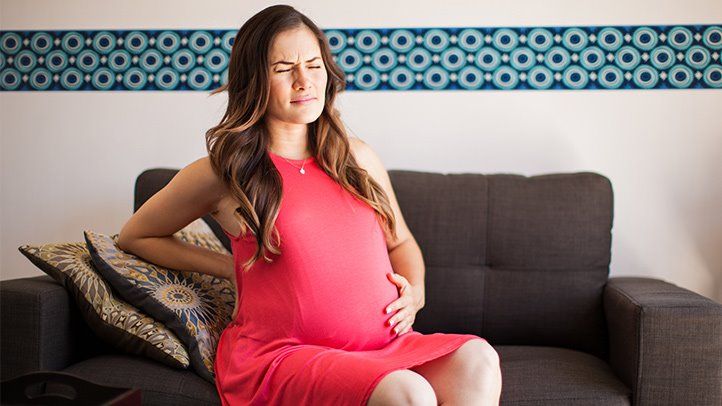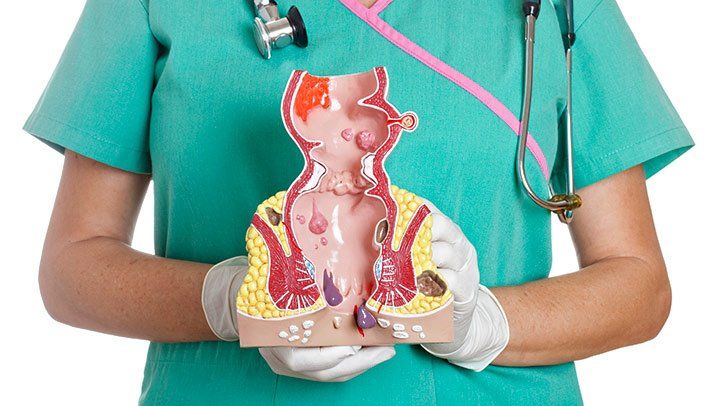Understanding Constipation After an Abortion Procedure
An abortion involves terminating a pregnancy for a variety of emotional, physical health, financial or personal reasons. While a complex personal decision, it remains a very common procedure elected by women globally. However, in the aftermath, some side effects like constipation can occur.
How Abortions Are Performed
Two primary methods exist for performing abortions: medical (drug-induced) abortions and surgical abortions. The former involves taking prescription medications to end a pregnancy. The latter relies on in-clinic procedures done by licensed doctors to empty the uterus.
Both methods last anywhere from several hours to a couple days on average. So after an abortion, continuing side effects are normal during the recovery phase as the body stabilizes hormones while expelling remaining pregnancy tissue.
Why Constipation Tends to Happen Post-Procedure
In the hours or days following an abortion, most women experience bleeding, cramping and other gastrointestinal issues like diarrhea initially. Once these symptoms fade, stools often become harder and more difficult to pass - sometimes not going for three or more days.
Doctors identify several reasons constipation frequently occurs after abortions:
- Hormone changes and imbalances
- Dehydration
- Medications
- Anesthesia side effects
- Bowel habit disruption
These influences commonly overlap too, so pinpointing a single cause proves difficult. Nonetheless, understanding why constipation manifests provides clues for easing discomfort through relief options.
Dealing with Constipation Afterward
While passing hard, dry stools can feel unpleasant or even painful, mild transitory constipation after an abortion generally poses no health hazards. Still, prompt relief remains important for both physical and mental well-being during an already taxing time.
Give Your Body Time to Rebalance
Before taking medications or rushing to drastic measures, allow a couple days for the body to auto-correct. Intestines need a bit longer to resume normal function following an invasive procedure like surgical abortion plus accompanying sedative medications. Patience pays off.
Likewise, dehydration from anesthesia side effects causes constipation too. But as hydration levels rise back to normal, so does bowel lubrication improving waste elimination. Drink plenty of water and clear fluids to aid this rehydration process proactively.
Follow Post-Op Instructions Attentively
Doctors and nurses provide explicit at-home care instructions following abortions encompassing everything from pain management and bleeding monitoring to dietary guidance and activity restrictions. If you closely adhere to these directions, constipation chances usually decrease.
However slight medication tweaks or oversights on nutrition, rest or pelvic stabilization techniques could unintentionally aggravate constipation. Review materials closely and ask questions to prevent self-sabotage.
Modify Diet to Soften Stool
Even while allowing the body to self-correct initially, proactively easing constipation through diet adjustments helps tremendously. The following foods either help move bowels more easily or soften stools directly to reduce painful straining efforts:
- Prunes
- Beans
- Lentils
- Broccoli
- Apples
- Pears
- Berries
- Yogurt
- Coffee
- Tea
- Soup broths
When grocery shopping after an abortion, load your cart with these items and avoid potential triggers like cheese, meat and refined grains. Smart nutrition prevents most constipation cases from becoming severe.
Using Over-the-Counter Remedies Safely
If a few days pass without bowel movements despite home remedies, utilize drugstore options judiciously. Both lifestyle adjustments and certain over-the-counter laxatives/stool softeners can nudge your system toward relief relatively quickly.
The Best Medications for Pregnancy-Related Constipation
Preferred constipation aids following abortions and childbirth include gentle stool softeners plus stimulant-free laxatives. These options minimize risks compared to formulations with harsh chemicals found in some diuretics and cleanse products.
Popular over-the-counter choices in the gentle category include:
- Stool softeners (Docusate)
- Osmotic laxatives (Polyethylene glycol)
- Bulk-forming fiber supplements (Psyllium husk)
- Saline laxatives (Magnesium hydroxide)
These either draw more water into stools from surrounding body tissues or physically add more mass. Both mechanisms make bowel movements easier without overly stimulating intestines. Start with lower doses and adjust per package instructions.
Avoid Harsh Laxatives, Diuretics and Cleanses
After an abortion, avoid dehydrating diuretic pills sometimes used short-term for weight loss pre-weddings and such. Any fluids pulled from supporting intestinal function won't help constipation.
Likewise, stay away from stimulant laxatives with diphenylmethane derivatives like bisacodyl or phenolphthalein. These can disrupt delicate fluid balances after pregnancy termination procedures possibly requiring hospitalization.
Aggressive colon cleanses or "detox" regimens also pose big risks following complex hormone shifts from abortions. Only utilize these under close medical supervision.
Consult Your Doctor When Needed
Severe pregnancy-related constipation usually resolves itself within approximately one week as the body rebalances. However, if you experience no bowel movements for three or more days accompanied by worsening pain, nausea, vomiting or abdominal bloating/swelling, promptly consult your obstetrician-gynecologist or primary care physician right away.
Likewise, overnight onset of bloody stools, dizziness, fever or fainting warrants urgent medical care to rule out dangerous complications like bowel obstruction, nerve damage or hemorrhaging.
Using Natural Remedies to Regulate Bowels
When battling constipation after an abortion, effective over-the-counter products provide trusted relief for many women. However, some patients wish to take a more natural approach before or instead of utilizing traditional drugstore options.
Drink Warm Fluids Like Tea
Beyond staying well hydrated with plain water, sipping on soothing warm teas naturally relaxes muscles and intestines to coax out built-up stools. The key compounds and herbs with anti-inflammatory laxative effects include:
- Caffeine (black/green tea)
- Tannins (black tea)
- Senna (herbal senna tea)
- Psyllium (herbal fiber teas)
Peppermint, ginger and fennel teas also ease stomach discomfort associated with constipation. Caffeine-free herbal varieties suit nighttime sippers too.
Up Fiber With Fruits, Veggies & Whole Grains
When stools lack solidity or "bulk", the intestines struggle moving waste along effectively. Upgrading fiber content through whole food sources offers a gentle fix. Consider adding:
- High-fiber cereal/granola with fruit
- Fresh berries, pears, prunes, apples
- Bran muffins
- Oatmeal
- Quinoa
- Brown rice
- Broccoli and brussels sprouts
- Lentils and beans
Ramp up fruits, vegetables and whole grains gradually allowing a few days for the body to adjust fibre intake upwards slowly. Drink more fluids as well to aid the fiber.
Massage With Essential Oils
Multiple studies demonstrate massage therapy's ability to reduce pregnancy-related constipation and improve bowel movements. The direct mechanical manipulation lifts moods too.
Boosting massages further, diluted essential oils like lavender, sweet orange and frankincense promote relaxation when applied to the abdomen and reflexology foot massage points connected to gut function.
Investing in a few post-partum massages can work wonders. But even light self-massage with essential oils combats constipation without drugs.
Identifying & Preventing Potential Complications
Mild to moderate constipation usually subsides within several days to a week following abortion procedures as hormones rebalance and women stay vigilant to keep bowels moving. However if neglected too long, serious complications can develop requiring emergency care.
Signs of Potentially Serious Issues
Contact your doctor promptly about post-abortion constipation accompanied by the following:
- No bowel movements for 4+ days
- Intense pains preventing sleep
- Inability to pass gas
- Vomiting
- Abdominal swelling/bloating
- Blood visible in stool
While not guarantees of major complications, these signs point to possible bowel obstructions, nerve damage or perforations needing evaluation. Dont downplay symptoms assuming theyll fade independently.
Avoiding Future Constipation After Abortions
To reduce constipation risks with any future abortion procedures, discuss concerns beforehand with your obstetrician-gynecologist or womens health nurse practitioner. They can note risk factors and highlight preventative steps specific to your medical history.
If undergoing a surgical abortion, also inquire about non-opioid pain reliever options and anti-nausea alternatives to minimize medication side effects provoking constipation. Staying ahead of challenges makes all the difference.
Likewise, assembling a personalized home remedy kit including teas, essential oils, topical creams and the appropriate over-the-counter aids for your needs helps prepare. Keep supplies at the ready to promptly address symptoms.
While rarely signaling serious health issues alone, tackling constipation quickly maximizes comfort during abortion recovery and beyond.
Disclaimer: This article is for informational purposes only and does not constitute medical advice. Always consult with a healthcare professional before starting any new treatment regimen.
Related Coverage
Learn about hemorrhoid symptoms, causes, home treatments, and when to consider hemorrhoid banding at home. Get step-by-step instructions on how to use a home hemorrhoid banding kit....
Hemorrhoids are swollen veins in the anus that can cause bleeding and pain. Learn about hemorrhoid causes, treatments, surgery, and prevention tips for men....
Chafing in the groin area is a common discomfort during pregnancy. Learn what causes it, prevention tips, home treatment options, and when to call the doctor....
Learn how mild soap & water can aid hemorrhoid relief alongside creams, wipes & sitz baths. Discover other proven home treatments plus prevention methods....
If you spot something resembling a kidney bean in the toilet after a bowel movement, it likely signals protruding hemorrhoids. Learn what causes them and treatment options....
Understand the potential risks and realities of pushing or straining during bowel movements in an attempt to induce labor. Learn safe strategies for managing hemorrhoids and constipation during pregnancy....
Frequent bowel movements and pooping a lot is common at 35 weeks pregnant due to physical and hormonal changes. Hemorrhoids are also likely as your uterus expands....
Hemorrhoids are very common and can cause anal itching, pain, and bleeding. Learn about causes, symptoms, diagnosis, and medical and at-home treatment options....
If you notice a pink ring around the toilet while pregnant, higher estrogen and hCG likely caused temporary urine acidity changes interacting with porcelain. Learn when it warrants concern....
Learn whether hemorrhoids can lead to prostate pain and urinary issues. Understand the indirect links between hemorrhoid swelling and prostate inflammation....



